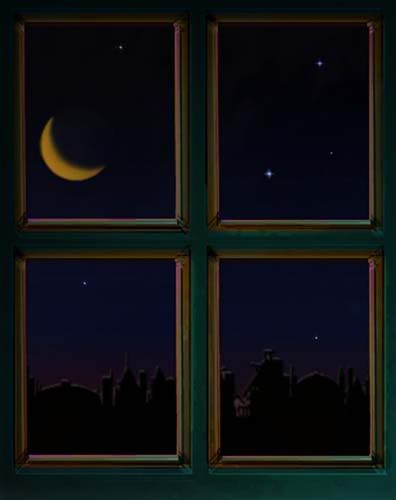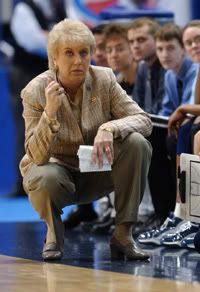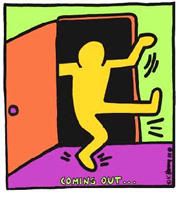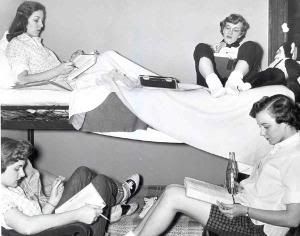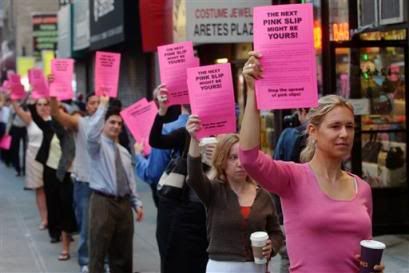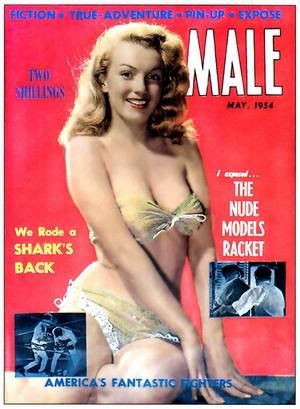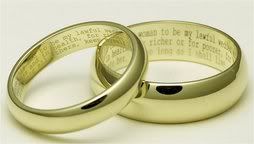
I admit that I wanted nothing to do this year with the conference I had attended faithfully for the last five years. I did not volunteer to give a paper, even though the conference was coming to my town. I have traveled to England and Canada for this conference, to the northeastern and southwestern U. S., but now that it was on my doorstep, I refused to take part. I wasn't sure how I'd feel having to write a paper if I didn't have a job, or how I'd even pay for the conference. I could imagine standing up in front of people and feeling stupid, like a fraud, and ashamed. I imagined how I'd have to dodge the inevitable questions: "Where are you now? What are you doing? What are you going to do?" I felt tired. I had done enough. I wasn't going.
I gave my partner input as she wrote her paper, listened to various versions, and helped track down images for her presentation, all with serene detachment. I had moved beyond this now. I was professionally dead and I had to let go, move towards the light, and not look back.
Then the conference came to town. My ex had brought an entourage of graduate students and wanted me to meet her for dinner (sans my current partner, who she has yet to forgive for taking up with me). A scholar I admired was giving a plenary. My partner was viewing and reviewing the program on line.
She noticed that some of my old colleagues were all in the same reading group together on Sunday night, and wondered aloud why they would want to clique up at a conference instead of just talk in the hall at school. I wondered if I would see them at the conference, and shuddered inwardly.
I decided I would sneak in for my partner's evening presentation, and sneak out. I would sit in the back and no one would see me. I could remain removed, yet benignly share in my partner's triumph. Let the young and enthusiastic partake as I passively passed the torch.
The train in to the city was quiet on a Friday evening. That was good because my heart hurt. I had ridden the train for so many mornings to work. I had listened to homeless people quote Bible verses and sing "Take Me Out to the Ballgame" in return for donations to their paper cups. I had watched the city unfold and fold up again like a beautiful diorama as I sped by its storefronts and bedroom windows.
I walked in the hotel and sailed by the conference registration desk, badgeless. Upstairs there was a reception. I lurked behind a column and waited for my partner, sullenly watching people I recognized plunge through a doorway into the sea of voices beyond. My partner saw me and trotted over, all smiles and conference excitement. She stopped twice on her way across the room as people she knew collared her for conversation. One of my ex's graduate students came over to talk to me. Then two more of them came over. My partner brought her friends over. Eventually we were all a small group in the middle of the room. I excused myself and fled into the reception I had been avoiding, thirsty for a drink. No sooner did I have a bourbon in hand than my partner found two nice lesbians for us to hang out with. I recognized one of them from previous conferences. They were nice, funny, rueful, and sarcastic without being bitter. One of them had just gotten a tenure-track job after years of commuting 90 minutes each way to an adjunct job. They knew what life was like for academics, for women on the market, for lesbians, for junior faculty trying to get tenure and keep their relationships from unraveling in the face of commuting and distance and job loss and homophobia and low pay, and they were still cheerful. Jolly and optimistic, even. I suddenly felt much, much better.
They asked me what I was doing and I told them, but they only nodded, shrugged, and congratulated me for keeping my options open. Nobody edged away, or changed the topic, or abruptly began talking to someone more promising, the way my graduate professors had at MLA cocktail parties when I or someone I knew had expressed doubts about an interview, or the job market, or the sanity of hanging on year after year hoping for that elusive tenure-track job. Instead, these people I had just met knew what the profession was like. They knew that success was a crapshoot, a turn of the wheel, often coming down to being in the right specialty at the right moment. It didn't mean you were brilliant or worthless. It didn't brand you forever as a star, or a loser. Too often, success or failure wasn't about you.
They seemed like some of the sanest people I had met in a long time.
The whole evening was like that. The whole weekend, really. My partner's paper was fabulous, the audience was enthusiastic, and people I had known from grad school were in the audience. We all were genuinely happy to see each other. They had carved lives out for themselves. Some of them had families and had made career compromises for their children's schools or their spouse's jobs. All of them were really, really happy to hear papers, talk about ideas, and catch up. All of them were encouraging, and kind. How was it that we hadn't been better friends when we were young? They seemed so balanced, so mature, so wise.
A few of us went out to a pub and drank beer. We talked for hours and told stories. We analyzed politics. By the end of the evening, I felt so happy. I realized I hadn't seen my ex colleagues, the ones who were convening on Sunday night, anywhere, because they weren't going to actually attend the conference. They were going to duck in and duck out, only going so long as to discuss their own work among themselves. Maybe they thought they were too busy. Maybe they thought they couldn't get anything from the people around them. I realized that even though I was no longer one of them, I had wanted to insulate myself from contact with other people in the same way. I realized that I was really glad I had stuck it out today, instead, with the ones who tried to go to other people's papers, who still believed in attending panels on writers and topics that interested them. I think I got, for the first time in a long time, that being part of an audience is a huge gesture of generosity and good will, and that that kind of energy is worth magnifying and setting loose in the world, to everyone's benefit.
I don't know if I will attend another academic conference or not. This time next year I could have another job, getting ready to write a paper for next year's gathering, or I could be on my way towards something else entirely. But one thing I learned from this conference, this meeting that I was dragged to kicking and screaming, where I took away so much cameraderie and good will. What I learned is that despite the bad meetings and bitter differences and pompous self-presentations and ideological splits of many departments, despite the hirings and firings and anxieties, despite the therapists and xanax prescriptions, the public hunger for fame and the private sniping for power, and the tendency to isolate one's self from one's colleagues, most people in academia are not fancy, or elite, or talking heads, or snobby, or judgemental. They don't think they're smarter or better educated than their colleagues. They don't necessarily look down on you, or me. They are trying to stretch low paychecks, keep gas in the car, have a lover, stay informed and enthusiastic, get tenure, write something, make a difference, raise kids. They are, most of them, really, really nice people who just want to remember why they got into this business in the first place, which is to go to papers, schmooze, drink beer, and swap theories. They still believe in a community of ideas, which is why they schlep across the country to these conferences in the first place, sitting at panels hour after hour, sometimes deep into the evening, taking notes, squinting hard trying to think up questions to help the presenters and their audiences take a thought, a beautiful idea, further, further, further.
They--and the conferences they loyally attend, year after year-- are, actually, really, really important, and really, awesomely nice.











